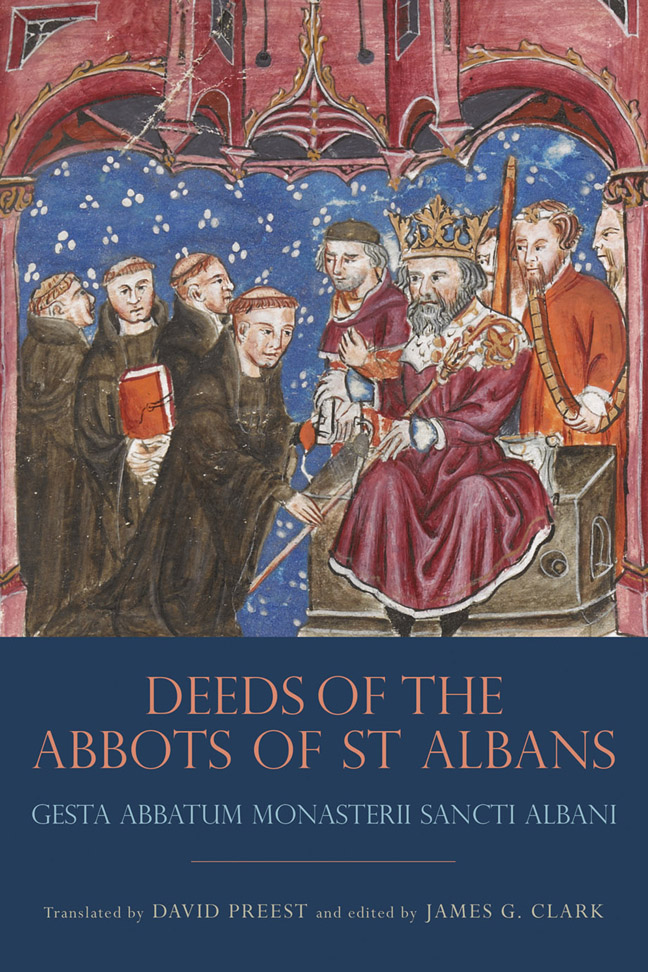Book contents
- Frontmatter
- Contents
- List of Illustrations
- Acknowledgements
- List of Abbreviations
- Introduction
- The Translation and its Sources
- The Deeds of the Abbots of St Albans
- Appendix A Thirteenth-Century Précis of the Deeds of the Abbots of St Albans: British Library, MS Cotton Vitellius a XX
- Bibliography
- Index
8 - Ealdred
Published online by Cambridge University Press: 17 February 2024
- Frontmatter
- Contents
- List of Illustrations
- Acknowledgements
- List of Abbreviations
- Introduction
- The Translation and its Sources
- The Deeds of the Abbots of St Albans
- Appendix A Thirteenth-Century Précis of the Deeds of the Abbots of St Albans: British Library, MS Cotton Vitellius a XX
- Bibliography
- Index
Summary
Ealdred eighth abbot
He was succeeded by Abbot Ealdred. This abbot, having examined some ancient, buried inscription from the old town which was called ‘Werlamcestre’, destroyed everything there and filled it in. He destroyed, filled in or stopped up the channels and even routes with their underground passages shaped into a solid tunnel by men's hands, some of which passed under the waters of the River Ver. This had once been a very large river flowing round Werlamcestre. For these passages were the hiding places of thieves, rogues and prostitutes. He also, as far as he was able, levelled the embankments of Werlamcestre and some caves, to which wrongdoers and fugitives from justice fled from the nearby thick woods, as if returning to their bolt-holes.
He also put aside complete roof-tiles and stones which he found suitable for building. These were reserved as materials for his church. For he planned, if the resources were available, to demolish the old church and build a new one. To this end, he had the earth dug out to a considerable depth, to see if he could find stone foundations. When the diggers did this, they found near the bank of the Ver oaken planks with nails attached and smeared with nautical pitch, of the sort that you get in boats. They also found bits of naval equipment such as anchors half eaten away by rust and oars made of firwood, a sure and clear sign of the sea water which once carried boats to Verulamium. The History of St Alban gives a clear explanation of the means and the miracle by which the Ver is now narrowed to a small stream.
To their amazement the diggers also found the shells of shell-fish, of the kind that a seashore is accustomed to bring up or throw forth, together with actual sea sand, which once upon a time was trodden on by the citizens as they hurried on their customary track to the martyrdom of the new martyr. When they saw these discoveries, the people of St Albans gave names to the places where such things had been found – or said that they remembered these names being used of old, such as Oyster Hill, Shellford, Anchorpool and Fishpool, this last name came from the remaining waters of the diminished fishpool of the king.
- Type
- Chapter
- Information
- The Deeds of the Abbots of St Albans<i>Gesta Abbatum Monasterii Sancti Albani</i>, pp. 79 - 81Publisher: Boydell & BrewerPrint publication year: 2019

